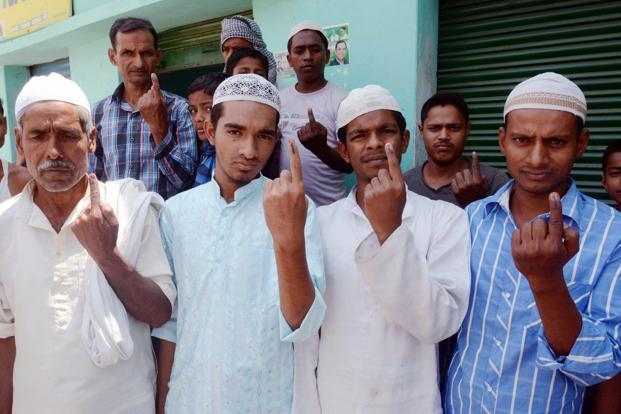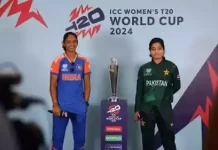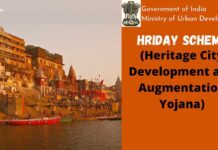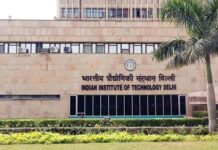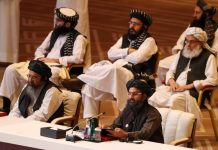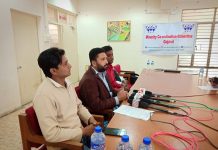The vote must go only for eligible one and the one who is the best among the contestants.
By Muaz Muddassir Qasmi – Siyasat.Net
With the announcement of Lok Sabha elections dates by the Election Commissioner of India on Sunday 10th March 2019, all the political parties escalated the preparations and campaigning with alluring agendas for upcoming general elections. In next few days the voters will see the political leaders coming to their doors with the glamorous and attractive manifestos. Some will play the game on the pitch of racism and other will come in the name of beguiling secularism. The voters will also witness that a number of political parties will emerge just on the name of nationalism and their enticing appeals will create confusion among the voters to whom support or not.
In fact India is the biggest democratic country where the vote plays a vital role like other democratic countries.
The voters have the power to choose their favorable government. The voters are mighty in the democracy, and they can make or mar the government. That is why Lincoln said “Democracy is a government of the people, by the people and for the people”.
In India all the citizens above the age of 18 are entitled to change the government by their votes. According to Election Commissioner from 11th April to 19th May 2019 about 90 crore Indians will cast their votes in support of government or bring other parties into government.
Every single vote has great influence in a democratic country.
To know its importance let us see the example of Atal Bihari Vajpayee government. How he lost his power in 1996? Just because of the single vote of Prof Saifuddin Soz as he had gone against the whip of his party and voted against the motion and the Vajpayee government lost the confidence motion.
Similarly, the Urdu language, how beautiful it is, widely spoken in India, and several political leaders including ex Prime Minister Dr. Manmohan Singh have a deep relation with this language even ex-Prime Minister Jawahar Lal Nehru used to write his letters and wedding invitations in Urdu language, but now the people are struggling for the existence of this language. It was the Rajendra Prasad who voted in the favor of Hindi language to grant it the national language. Just because of the single vote of Rajendra Prasad, Urdu lost its status to be granted the national language.
Thus, it is the moral obligation of every citizen to use their power of vote with a wise decision. The selection of ruling party also reflects the leanings of the citizens. It is a great responsibility on the shoulders of citizens to select their representatives. The citizens should never select their representatives being influenced with the sentimental words of the leaders. The wise voters elect the representatives on the criteria of the work and activities for the welfare of their nation and communities.
Election Commission urges the people to come out in large numbers to cast their votes. Mr. Modi also appealed to the celebrities to invite the people to celebrate the great festival of democracy by casting votes in favour of the BJP.
It is a matter of great concern that India never witnessed 100% voting in seventy years. In 2014 the average election turnout was around 66.38%, and it was the highest ever in the history of Indian general elections.
The most votes cast reflect the majority opinion of the most populous democracy. It is seen that about 30 to 40% percent Indians seem to be careless regarding their votes.
Let me come to our Muslim community, which is the most suffering community in India. It is not able to cast bulk votes to influence political outcomes. It seems to be most negligent in casting votes. Though it forms the biggest minority, it never could send its enough representatives to raise their issues in the Lok Sabha as needed, but rather the number of its representatives in Lok Sabha is getting down.
Let us see the ratio of Muslim votes and their elected members for Lok Sabha in the last General election in 2014.
According to data accessed from Google there are 145 seats in India where Muslims held for 20% of the overall vote share on each seat, Muslims have 30% vote share in almost 38 seats, and there are about 35 seats in which out of every 3 votes is a Muslim vote. This shows that Muslims have the potential to show their influence in almost 218 seats and they could play a vital role, if they were consolidated in favor of any particular candidate.
Unfortunately, after the 2014 general election, there were only 24 Muslim MPs which constituted only 5% of overall members of Parliament.
As a result of their lackadaisical attitude, Muslims faced and suffered during the last five years. It was not only Muslims who were troubled, but all the minorities and Dalits had tough experiences in the last five years.
Muslims votes always seen to be splitting in the name if secularism as several candidates stand up to contest in one constituency with the tag of being secular and that causes to help the BJP candidate to emerge with small or big margins.
Muslims leaders and organizations proved themselves politically poor. Differences of ideas and views led them divided and thus their votes remained unaffected in Indian politics.
To save the secular votes, Muslims and others who believe in a secular democracy need to take bold and strong measures. For that first of all the eligibles must come forward to cast their votes, as every vote has great importance.
Muslim leaders and Imams of masjid can urge their followers in this regard. It is not a time to discuss on the election falling in Ramzan. Why they are making it so tough to spare only two to three hours only in one day to cast their votes? According to Mufti Shafee Usmani (rh) voting is like a witness (shahadat) and hiding witness is unlawful (haram). He also said that it is a big mistake and great negligence to think of election as a game of losing and winning and avoid casting vote. Every voter is accountable for the fate and future of nation.
Every single vote has the power to change the fate of the nation and community, so the vote must go only for the eligible one and the one who is the best among the contestants.
There some constituencies where the candidates are more influential than their parties, and in such cases, the voters need to cast their vote on the basis of candidate not on the basis of the party’s popularity or lack of it.

















